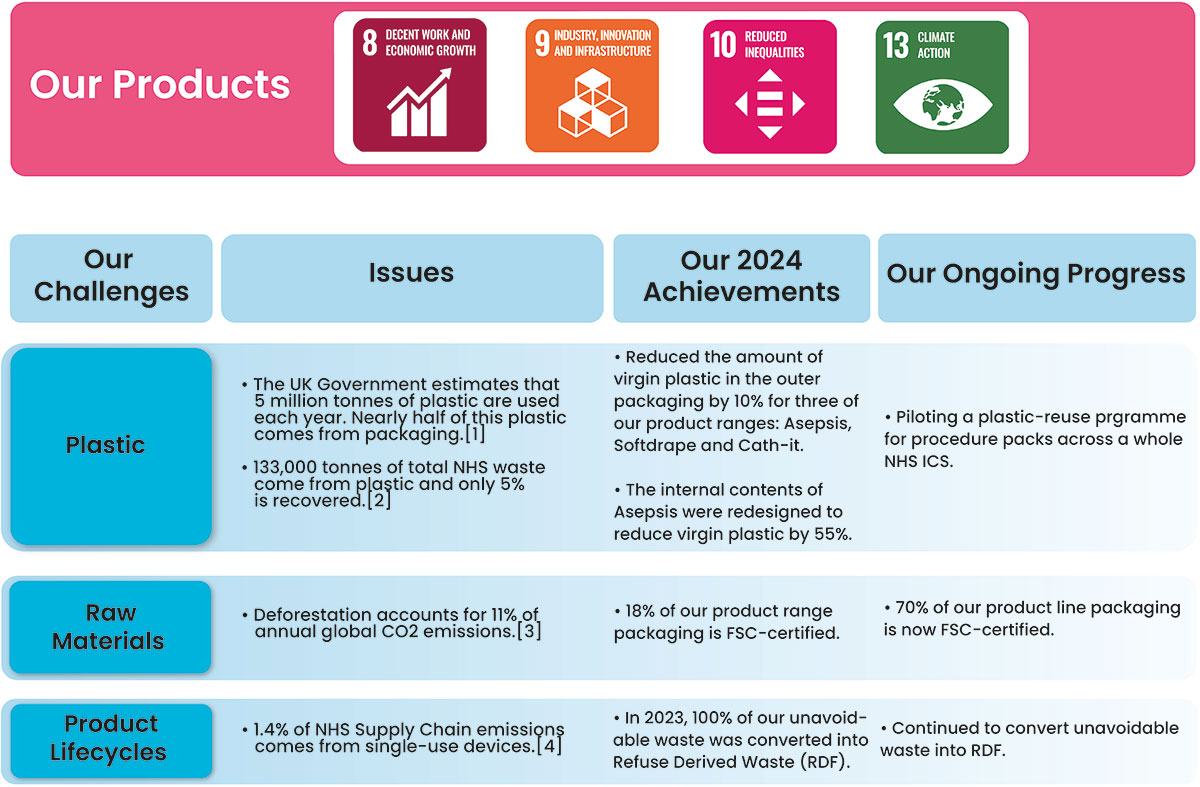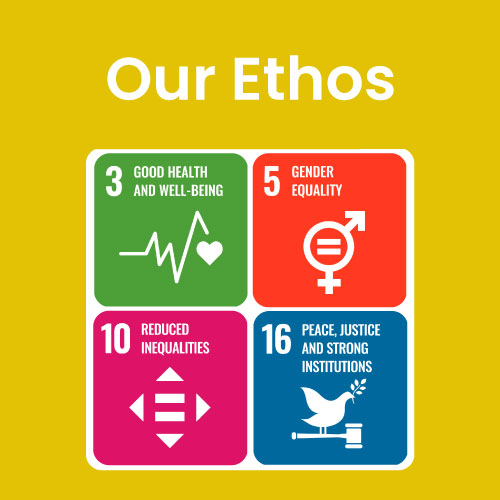Our Products
The research, development and manufacture of our products has always taken a patient-first approach. This approach is a balancing act that considers quality, ease of use in clinical settings, cost-effectiveness and good patient outcomes.
Despite the resource-heavy nature of some of our key areas of clinical concern (i.e., wound care and urology), sustainability has not, until recently, been at the forefront of clinical decisions during the delivery of care.
In response to this challenge, we have adopted a three-fold approach to our products:
- Optimising the design of existing products in order to maximise benefits while minimising the use of unsustainable materials and waste.
- Incorporating sustainable principles and practices into the development of new products from the beginning.
- Expanding our educational resources and services for both our products and a range of clinical indications. This is undertaken with the intention of reducing the unnecessary use of resources and limiting waste through improved clinical pathways and practice.
Our Products: Ambitions, Progress and Outstanding Objectives
Useful articles:
References:
- Smith, Louise. Plastic Waste. House of Commons of Library 2022: 6
- Rizan, Chantelle, et al. Plastics in Healthcare: Time for Re-evaluation. Journal of the Royal Society of Medicine 2020: 113(2): 49-53
- Dunne, Daisy. Deforestation Has Driven up Hottest Day Temperatures. Carbon Brief. Available at: Deforestation has driven up hottest day temperatures, study says – Carbon Brief
- NHS. Delivery a Net Zero National Health Service 2022: 22. Available at: delivering-a-net-zero-national-health-service.pdf (england.nhs.uk)




